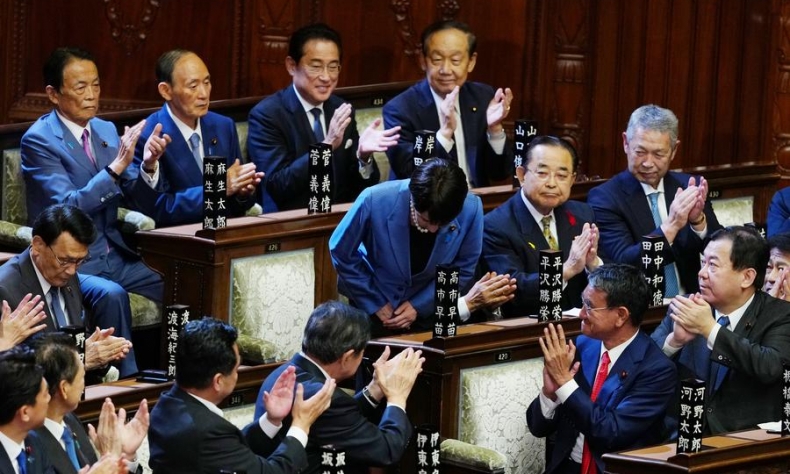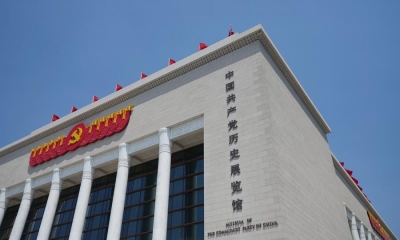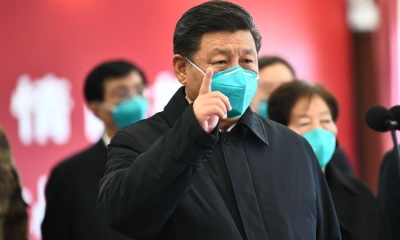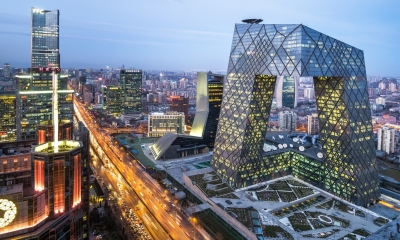Not “Work, Work, Work,” Ms. Takaishi, But “Wisdom, Wisdom, Wisdom”

As Prime Minister of Japan, Takaishi must urgently rise above narrow nationalism and partisan reflexes and assume the responsibility that her office demands — to act as a true guardian of peace and harmony in a region where trust is fragile and history is still alive.
I am not surprised by Sanae Takaishi’s attempt to interfere in China’s internal affairs by linking “a Taiwan contingency” to Japan’s fate. Her past shows that she is a revisionist and a historical negationist — a sad reality that unsettles consciences far beyond China. Her thinking challenges not only Japan’s moral bearings but also the collective understanding on which the postwar international order was built: the renunciation of militarism, nationalism, and denial. And now she has become the Prime Minister of Japan.
The contrast with Europe can hardly be sharper. In 2025, it would be unthinkable for Germany to elect a chancellor who had sought to downplay or justify the crimes of the Nazi regime. No German public figure could openly doubt the horrors of the Holocaust and remain in public life. Over the past eight decades, Germany has made the painful but necessary choice to confront its guilt — to remember, to teach, to apologize. That reckoning became the moral foundation of Europe’s renewal and its democratic stability.
Japan, by contrast, has never undertaken a comparable process. Its memory of the war remains fragmented, selective, and, in many quarters, deliberately distorted. Sanae Takaishi embodies that distortion. Her record shows a consistent effort to soften, minimize, or recast Japan’s wartime aggression. She has questioned the scale of atrocities, portrayed Japan as a misunderstood victim of postwar propaganda, and promoted a nostalgic nationalism that flatters the past rather than faces it. Her supporters see pride and resilience; her critics see denial and danger.
The truth is simple: Takaishi’s worldview reflects a form of national amnesia — one that Japan can no longer afford. The crimes of Imperial Japan were not accidents of war. They were deliberate, systematic acts of cruelty that seared themselves into humanity’s conscience. The Nanjing Massacre, the enslavement of “comfort women,” the torture and starvation of prisoners of war — these were not isolated incidents but the logical outcome of an ideology steeped in racial superiority and divine mission. To deny or diminish that truth is not a matter of interpretation. It is a moral failure.

Japan’s postwar success makes this moment all the more paradoxical. From the ashes of defeat, the nation rebuilt itself into one of the world’s most vibrant countries. Its culture, economy, and diplomacy have projected peace, creativity, and quiet sophistication. That achievement — that moral authority — rests on a tacit promise: that the Japan of today is not the Japan of empire and conquest. But when historical revisionism reaches the highest office, that promise begins to crack. To legitimize denial at the pinnacle of government sends a chilling signal — to Japan’s neighbors and to the world — that truth itself is negotiable.
We wish Japan and its people well. They deserve leadership grounded in honesty, humility, and moral clarity. There is no contradiction between loving one’s country and acknowledging its crimes. On the contrary, true patriotism demands the courage to face uncomfortable truths. Those who engage with Prime Minister Takaishi — from Washington to Brussels, from Seoul to Canberra — must do so with open eyes. Dialogue with Japan remains essential, but it must be principled and clear-sighted. History is not a purely domestic matter when it shapes the moral foundations of peace. A selective memory of the past endangers not only Asia but the integrity of the whole world.
That Takaishi is a woman should not blunt critical judgment. Her gender is historic, but it cannot serve as absolution. Symbolism matters, but substance matters more. Her rise must not obscure the crimes committed by the Japanese army in China, Korea, the Philippines, and beyond. The victims of those crimes — and the descendants who still bear their memory — deserve more than silence or euphemism.
As Prime Minister of Japan, Takaishi must urgently rise above narrow nationalism and partisan reflexes and assume the responsibility that her office demands — to act as a true guardian of peace and harmony in a region where trust is fragile and history is still alive. What the moment requires is not “work, work, work,” as she urges the Japanese people, but “wisdom, wisdom, wisdom” — the wisdom to face the past honestly and to choose a future built on truth rather than denial. It is not too late, but the window is closing.
The article reflects the author’s opinions, and not necessarily the views of China Focus.
 Facebook
Facebook
 Twitter
Twitter
 Linkedin
Linkedin
 Google +
Google +







